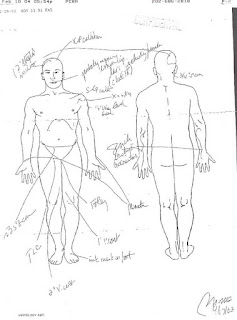Carnivory conjures up an Edenic past that contrasts with our current discontents: a mythical time when men were manly and bodies were fit and food was real and natural.It’s familiar terrain. The most successful diets of the past half century benefitted from similar marketing. Freedom and vigor come from reënacting the lifeways of make-believe ancestors. When, in the nineteen-seventies, Nathan Pritikin championed a high-carbohydrate, low-fat regimen, he and his co-authors claimed that it was “an accident of civilization” that Americans had such easy access to fat and cholesterol. “Primitive people” were “more likely to be near-vegetarians,” he asserted. When Robert Atkins promoted the opposite approach—carbohydrate restriction as the key to good health—he stressed that “the food you eat when you do Atkins is surprisingly close to what our primitive ancestors ate.” And in “Diet for a Small Planet” (1971), perhaps the most important tract in favor of meatless eating ever published, Frances Moore Lappé told her readers that she advocated “the return to the traditional diet on which our bodies evolved.”
https://www.newyorker.com/magazine/2023/10/02/is-an-all-meat-diet-what-nature-intended
But the Media Loves the Dead Guy
On Tuesday, February 10, 2004 the fall of the Atkins Empire began with the publication of a medical report on Atkins’ body by the Office of Chief Medical Examiner, the City of New York. This report was obtained legally and without deception by Richard Flemming, MD, a cardiologist from Omaha, Nebraska. The report was then sent to Neal Barnard, MD, of the Physicians’ Committee for Responsible Medicine. This organization gave the report to the Wall Street Journal and they made these findings public with an added note from the Journal that with a weight of 258 pounds and a height of 6 feet he would be properly classified as “obese.” That week I appeared on several national TV and radio shows, and was quoted in newspapers worldwide, including the New York Times – taking the position that his medical report was fair game because he was an icon in the diet industry, and the lessons learned from his poor health would save lives.
The Atkins organization denies he was grossly overweight and claims he weighed between 180 and 195 pounds. They say his medical records indicate he weighed 195 pounds just before he entered the hospital at the time of his death. They claim the additional weight, totaling 258 pounds reported by the medical examiner, was from fluid accumulation during his 9 days of hospitalization prior to his death. That would mean 60 to 80 pounds of fluid, equal to 8 to 10 gallons of water, would have been added to his body. Any medical doctor who allowed this much fluid accumulation in a patient in 9 days should have his medical practices reviewed.
At the present time the media coverage of this story is largely in defense of Atkins. Some of the press has labeled the release of the report of his poor health as a “Vegan Agenda,” and Mrs. Atkins, on Dateline (TV show), Friday, February 20, 2004, said those speaking against her husband are the “vegetarian Taliban” and “they’re nasty.”
No harm is intended for the Atkins family, but all this controversy is an opportunity to save countless lives of people who fail to understand the truth about human nutrition, and especially those who have been mislead by Dr. Atkins and his organization. If people keep talking about the science behind low and high carbohydrate diets, then the evidence will eventually come out. My hope is that the fight escalates. For those of you who think maligning a dead man is in bad taste – think again – Atkins’ image is alive and well on TV, radio, newspapers, fast food restaurant menus, and supermarket shelves – making $100 million a year for Atkins Nutritionals Inc., selling people worldwide a program that results in short term weight loss (at best), is nearly impossible to follow, and eventually causes extremely poor health – the diet’s founder, Dr. Atkins, is one important piece of the proof. When the Atkins business stops promoting him, I will stop criticizing him.






